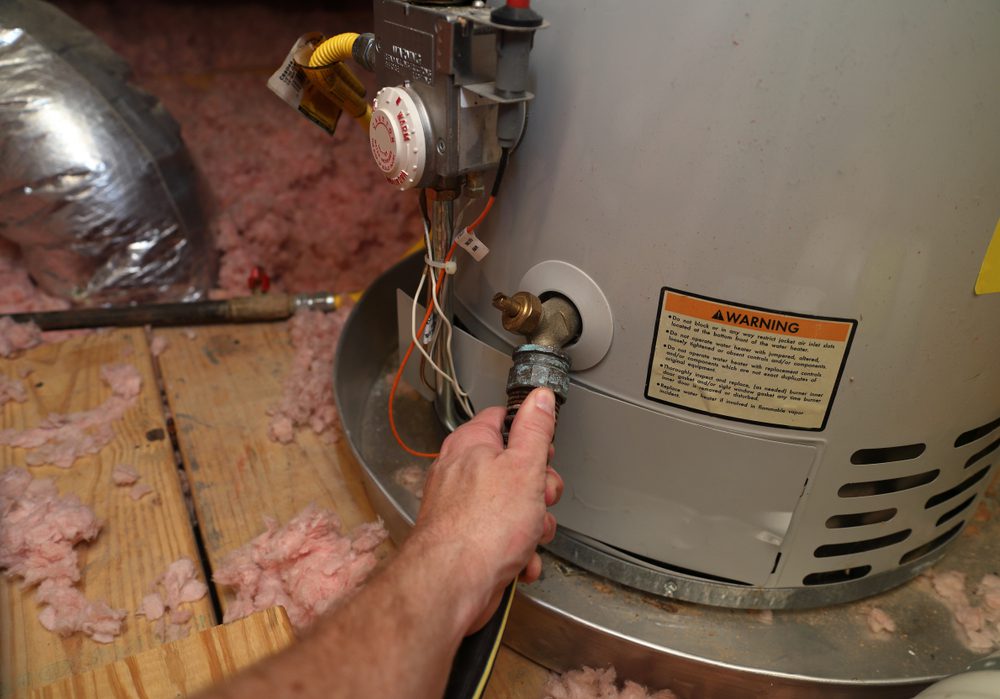Handling the Routine Hot Water Heater Crisis Events
Handling the Routine Hot Water Heater Crisis Events
Blog Article
They are making several great annotation on The Importance of Water Heater Maintenance as a whole in the content on the next paragraphs.

A water heater is just one of the most crucial fundamental home appliances that can be located in a residence. With hot water heater, you don't require to experience the stress of heating water manually every time there is a need to wash, wash, or the meals. Nevertheless, there is always an opportunity that your hot water heater would certainly act up as with most mechanical devices.
It is necessary to keep in mind any type of little malfunction and tackle it rapidly before points get out of hand. Many times, your water heater begins to malfunction when there is a build-up of debris as a result of constant usage. As a safety measure, periodic flushing of your water heater is recommended to prevent debris accumulation and avoid practical failure.
Common hot water heater emergency situations as well as exactly how to take care of them
Leaking hot water heater storage tank.
In this scenario, you must turn off your water heating system, allow it to cool down, and very carefully look for the resource of the issue. At times, all you need to do is to tighten up a few screws or pipe connections in situations of small leaks. If this doesn't function as well as the leakage persists, you could require to utilize the services of a professional for a proper substitute.
Changing water temperature.
Your water heater could begin generating water of different temperatures usually ice cold or hot warm. In this circumstance, the first thing you do is to guarantee that the temperature level is readied to the wanted degree. If after doing this, the water temperature maintains changing throughout showers or other activities, you could have a malfunctioning thermostat. There could be a requirement to change either the thermostat or the heating device of your water heater.
Inadequate warm water
It may be that the water heating system can't support the warm water need for your house. You might update your water heater to one with a larger capability.
Blemished or stinky water
When this happens, you require to know if the issue is from the water or the storage tank resource. If there is no amusing smell when you run cold water, then you are specific that it is your water heating unit that is malfunctioning. The smelly water can be triggered by rust or the accumulation of bacteria or sediments in the water heater container.
Verdict
Some home owners overlook little caution as well as minor faults in their water heater unit. This just causes additional damage as well as a possible full breakdown of your device. You need to deal with your water heater faults as soon as they come near avoid even more costs and also unneeded emergency troubles.
With water heating systems, you don't require to go via the tension of home heating water manually every time there is a requirement to take a bathroom, do the washing, or the dishes. Your water heating unit can begin producing water of different temperature levels generally ice cold or scalding warm. It might be that the water heating system can not sustain the hot water demand for your house. If there is no funny smell when you run cold water, then you are particular that it is your water heating unit that is malfunctioning. The smelly water can be triggered by rust or the accumulation of microorganisms or debris in the water heating system container.
Common Water Heater Issues and What You Should Do
What Type of Water Heater Do You Have?
Before we begin it’s first important that you identify the type of water heater you have on your property. There are two main types of water heaters out there: conventional and high efficiency.
Both of these types of products typically use either gas or electricity to heat power. There are also solar water heaters that use a thermal collector on the roof or yard to heat the water.
While these models are not as common, they can cut heating costs in half. In this article, we will focus on conventional and high efficiency.
How Do My Electric and Gas Water Heater Work?
Though they look similar, electric and gas water heaters work very differently. It’s important to know their basic function because often problems can be specific to the heating source.
In the electric model, a thermostat on the side of the machine detects the temperature of the water in the tank. When the temperature needs to rise electricity flows to a heating element suspended in the water.
Gas models also use a thermostat device — typically with a mercury sensor at the tip and an additional sensor called a thermocouple. The thermocouple detects whether the pilot light is on and controls the flow of gas.
When the thermostat drops below the appropriate level gas is released which becomes ignited by the pilot light. The flame heats the bottom of the water tank which causes hot water to rise and cold water to drop.
This natural circulation continues until the water reaches the desired temperature. Then, the thermostat triggers the gas control valve to shut off the flow of gas.
What Are the Most Common Issues and How Do You Fix Them?
https://happyhiller.com/blog/common-water-heater-issues-and-what-you-should-do/

As a person who reads on Is Your Water Heater Leaking?, I think sharing that piece of content was a smart idea. Do you know about another person who is in to the subject? Be sure promote it. We recognize the value of reading our article about Common Hot Water Heater Problems.
Premium plumbing emergency care here. Report this page